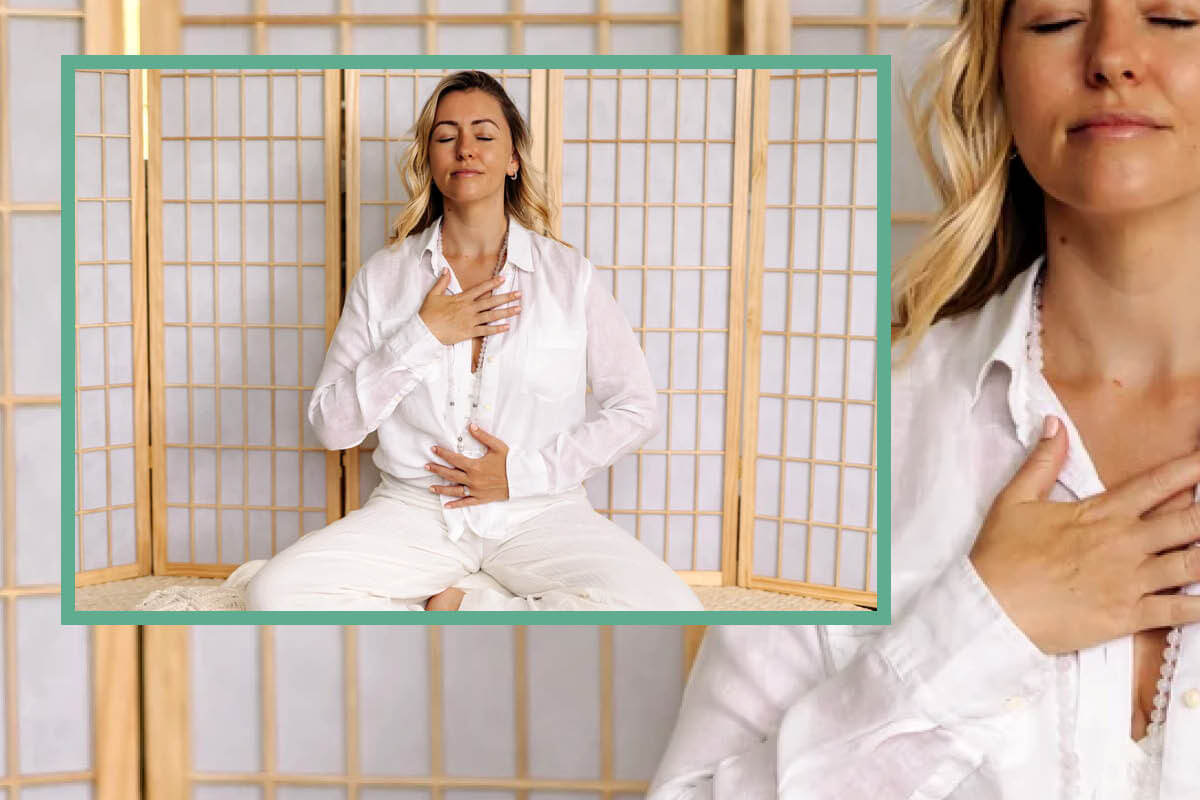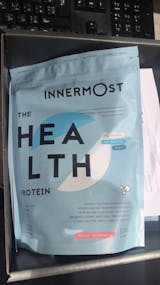Phoebe Greenacre is a woman of many talents. As well as being a yoga teacher, holistic therapist, and meditation coach, Phoebe is the co-founder of sustainable activewear label Silou London. We caught up with her to find out about how she gets it all done, the importance of mind-body connection, and what keeps her moving.
Hi Phoebe! Tell us a bit about yourself and how you got into the world of health and fitness?
So I started doing yoga at 15, and I’m now nearly 37. When I moved to London six years ago, I trained as yoga teacher and then continued with a type of advanced level training called Embodied Flow. That was another 300 hours of training, which was a mixture of somatic therapy, psychology and free movement and it led me onto retraining as a somatic therapist. I focus on somatic movement therapy. So rather than the emotions being stuck in your body, it’s allowing them to move through you.
What sorts of classes do you teach today?
Now, I mostly teach yin classes and integrate that with my holistic therapy. With yin yoga, you hold each pose for around five minutes, so you’re quite stationary. Yin is an opportunity dive into the unconscious, emotional and spiritual body. Rather than looking at the aesthetic of a workout, you’re looking at the emotional side and a lot of emotion can come to the surface. So crying, sadness, anger, frustration are all very normal. That really works with the somatic therapy I do. I also used to teach a lot of vinyasa, and I still have that on my membership platform, The Self-Care Space.

Can you tell us more about The Self-Care Space?
It was my lockdown baby. It kind of came out of nowhere. I wanted to create this community and safe space for people to unwind and let things bubble to the surface. I taught yin therapy for all 25 weeks of lockdown and had nearly 50 people coming to each class, which is unheard of. It’s basically an online library of yin yoga, vinyasa flow yoga, stretching, breath work and sound healing. You pay £29 a month for membership, and you can do as many classes as you want. I also did lots of free meditations on other people’s accounts, from Deliciously Ella to Marie Claire and more. I did nearly two or three a week over lockdown so it was intense!
You also have another business though, with your activewear label Silou. How did that come about?
Being a yoga teacher, you’re in activewear a lot. But at the time we launched, around 2017, the activewear market was full of lots of pattered and loud pieces, and plastic-y feeling materials with lots of big logos. My co-founder Tatiana is also a yogi, and we wanted something very minimal, pared back, and chic. In regard to the name, it comes from the word ‘silhouette’, so it’s all about embracing your silhouette and letting your body shape and personality shine. We’re also an all-female team, so it’s definitely about girl power here too.
The activewear market has become very saturated over the past few years though. How do you ensure Silou stands out in that crowd?
When we started, there was no one in the market doing sustainable activewear that was also luxury. We made Silou for the more discerning consumer who is interested in sustainability and the ethics behind the company. We make everything in Europe and use Italian fabric which is all sustainable, so it’s either recycled or we use organic cotton or fabrics that are better for the planet than normal activewear materials made in Asian sweatshops. It’s been a process of educating the customer too – now, when you say ‘sustainable’ most people know what it means, but four years ago no one knew or even cared about it.
Back in 2017, there wasn’t a lot of recycled material on the market, so our first collection, even though it was ethical, wasn’t recycled. But we’ve evolved as the years have gone on and we’ve spent the last four years developing our own fabric which is recycled and will launch next year. We’ll own the patent to that fabric, which is really exciting.
Silou prides itself on being ‘lifewear’ just as much as activewear. Can you explain a bit more about what this means and why it’s important?
Tatiana and I are both yoga teachers. She’s a mum of three and I’m a very avid traveller (normally). So we needed something that was flexible, durable, but also stylish. For example, we’ll never do a neon pink because it’s just not our style and it’s not something we could seamlessly transition from a studio class, to lunch with a friend, to the school run. That’s why we call it ‘lifewear’, because it fits into all aspects of life.
But activewear is now fashionable too and actually, this has been the best year we’ve had so far. In fact, we tripled our sales over lockdown. With many of us not needing to go into offices, we can often end up staying in all day and you want to feel good and put-together, but still comfortable.
And what are your thoughts on today’s wider wellness market? Do you see it as a positive thing or something that takes advantage of people’s insecurities?
I think it depends on how educated you are and how well you know yourself. There’s products being thrown at us left, right and centre, and if you aren’t comfortable in yourself, you’re more likely to think you need to buy this and that to feel better. If you’re empty inside and not happy with who you are and what you’ve been given, you’ll look to fill it with all sorts of different things.
But the growth of the wellness industry can also be a good thing. For example, there are people in their 20s who used to buy new dresses every weekend, and now they’re buying fitness classes. Or, they’ve swapped their coffee for breakfast with a protein shake. I feel like those are positive changes. At the end of the day, if you’re grounded and fuelled with good nutrition and positive energy, you won’t be looking for things that you don’t need. What lockdown taught me is that we don’t need a lot. Food, shelter, and some connections. It’s about the joy of the small things.
Discussion of mental health is something that the wellness industry is also partly responsible for bringing to the fore lately. Why is working on your mental health is just as important as your physical health?
We spend so much time going to the gym to make our bodies look good. But people suffer mentally because they never put any effort or investment into it. People want new results without changing what they’re doing. If you wanted to lose weight, you’d go to the gym. So if you wanted to feel better, why wouldn’t you go to therapy? People that I’ve worked with always wonder why they didn’t do it any sooner.

Why is it important to move and stay active mentally and physically?
Stagnant energy causes discomfort. If you stay still, things don’t change. The perfect way to move stagnant energy is to move yourself physically and emotionally.
How do you like to stay active?
Besides yoga I’m a big barre class girl. I love Xtend Barre in London. Doing three classes of that a week for a month gives you completely new arms. I’m a big walker as well.
What advice would you give to people looking for inspiration to stay active?
Try new things, try new teachers, and be open to finding your teacher. Be curious and do things that make you come alive. And look at your exercise as a way to complement your life. So, if you’re normally stressed, then do things that calm you down and if you’re a really chilled person, try something more upbeat and uplifting.
To see more from Phoebe, find her at www.phoebegreenacre.com and on Instagram @phoebegreenacre.























